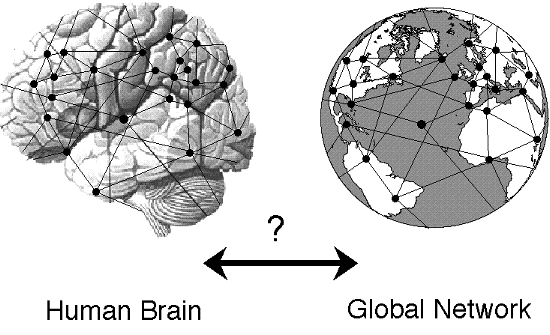The World Mind Network, and its affiliate Friends Beyond Borders, is offering a $5000 Prize for the best Collaborative Mind Map addressing the current financial crisis initiated by the successive failures of financial giants Merrill Lynch, Lehman Brothers, and the AIG Insurance Group.

You don’t need to know how to spell Macroeconomics to know that many factors have led to the current crisis. But traditional industry and academic methods to track these have lacked the complexity and subtlety required to comprehend all of these aspects and their interactions.
Mind Mapping software, which allows users to develop new concepts quickly by brainstorming in non-linear ways, has been around for decades. But collaborative Mind Mapping, epitomized by programs like MindMeister, is fairly recent. It combines the power of social networking and web 2.0 tools with traditional Mind Mapping software to create something like a Human Supercomputer.
The WMN’s contest ends on December 31, and the prize will be awarded on January 15, 2009.
The newly revised World Mind Network website, at worldmindnetwork.net, gives visitors a virtual Time Machine ride from pre-history up to the Middle Ages and beyond.
Many things which occurred in the distant past are still occurring now, and if they are viewable or hearable over the Net, one can enjoy an experience very much like travelling forward in time. Thus, the site has links to an audio feed of the background microwave radiation generated by the Big Bang, live pictures of the sun, webcams showing gorillas, pandas, and bees, and even live video of archaic human lifestyles like monks praying in a monastery.
The site is used in schools in Japan, Macedonia, Kenya, Bhutan, Bolivia, and Holland.
The site has other features which embody its theme of the Internet as ‘World Brain’: a section called ‘Wisdom of the Elders’ which links to short videos of living and dead sages from Carl Jung to Nellie Red Owl; a listing of prestigious online scientific experiments which welcome participation by anyone with a PC, and a group of blogs and forums from Third World countries not normally encountered in the higher ranks of the Blogosphere. There is an index of Fair Trade artisans from Asia, Africa, and Latin America.
The World Mind Network recently completed a project with the Sambaza Group and Friends Beyond Borders in East Africa, which allows cellphone users with unused minutes to ‘donate’ them to a Multimedia ICT education center in Kenya, which can use them as a kind of legal tender (http://www.africahelpguide.com/article.cfm/id/319009)
Next in the works is the ‘Rare Languages Institute’. For all its wonders, the Internet has a certain homogenizing effect on human culture, and one aspect of this is the tendency to standardize English as a lingua franca. The WMN is setting up a series of blogs and social networks on which members can ONLY communicate in Ewa, Manx, Shoshoni, Maltese, West Javanese, and other fascinating but threatened languages.
The founders welcome new proposals which relate to the main theme: How can Web communications address major world problems with something like the efficiency of a biological brain? Contact them at friendsbeyondborders@gmail.com or call Evelyn Machiraju, Peter Woolf or John Toomey at US(626) 230-8862.
Image courtesy of pespmc1.vub.ac.be
Â
Via EPR Network
Â
